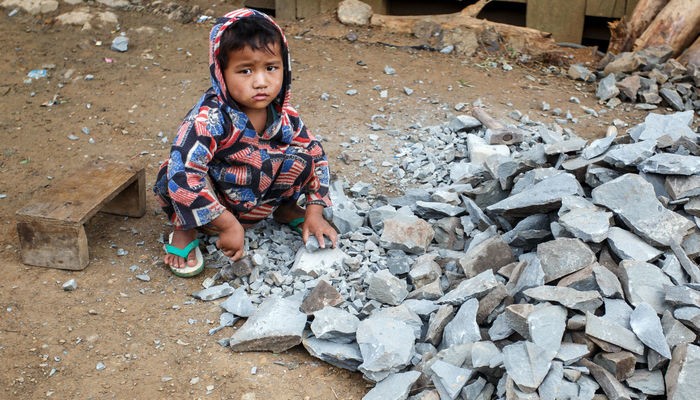‘Exploited child labourers live with mental disorder’

By A Staff Reporter
Kathmandu, Nov14: The child labourers, who face physical torture, live with mental problems throughout their lifetime, a study conducted on emotional scars of the rescued children showed.
The study jointly conducted by Department of Psychology at Tribhuvan University and King’s College London has revealed the rescued children who face exploitation while working as child labourers, live in anxiety, depression and post-traumatic stress disorder.
The study found mental illnesses prevalent in 103 rescued child labourers aged between 12 to 18. The children belonged to eight different care homes in Kathmandu.
The study showed 62 per cent children had faced three types of victimisation such as physical abuse, sexual abuse, psychological or emotional abuse and neglect in their lifetime.
Out of the total respondents, 25.2 per cent has been living with panic disorder, 27.2 per cent with separation anxiety disorder and 9.7 per cent with generalised anxiety disorder. Similarly, 6.8 per cent has been living with some form of depression and 12.6 per cent with dysthymia disorder.
In the study 38 boy and 65 girls ex-child labourers were included. Of them large percent of girls had faced mal treatment and emotional abuse where as large per cent of boys had faced physical abuse.
According to the research, out of 100 per cent, 76 per cent boys had faced maltreatment and 83 per cent girls faced it. And 37 per cent male had faced emotional abuse and 43 per cent girl faced that abuse. Likewise, 53 per cent boys had faced physical abuse and 43 per cent girls faced the abuse.
Of the total respondents, 39.8 per cent children belonged to the Tamang community, 26.2 per cent to the Brhaman\Chhetri community, 7 per cent the Dalit community, and remaining to other communities.
The research was conducted by Shanta Niraula, former head of the TU’s Psychology Department, Narayan Sharma, and Sandesh Dhakal, lecturers at the Tribhuvan University and Jennifer F Lau, lecture of King’s College London.
Narayan Sharma, a team member, said they found that problems of emotional scars were higher among the children who had faced different kinds of torture.
Sandesh Dhakal, another member of the team, said if such children would get treatment in time, they would be absolved of all emotional wounds and would lead a normal life.
A few days of counselling could cure these children, Dhakal added. The concerned authorities have to manage counsellors to cure the emotionally affected children.
Recent News

Do not make expressions casting dout on election: EC
14 Apr, 2022
CM Bhatta says may New Year 2079 BS inspire positive thinking
14 Apr, 2022
Three new cases, 44 recoveries in 24 hours
14 Apr, 2022
689 climbers of 84 teams so far acquire permits for climbing various peaks this spring season
14 Apr, 2022
How the rising cost of living crisis is impacting Nepal
14 Apr, 2022
US military confirms an interstellar meteor collided with Earth
14 Apr, 2022
Valneva Covid vaccine approved for use in UK
14 Apr, 2022
Chair Prachanda highlights need of unity among Maoist, Communist forces
14 Apr, 2022
Ranbir Kapoor and Alia Bhatt: Bollywood toasts star couple on wedding
14 Apr, 2022
President Bhandari confers decorations (Photo Feature)
14 Apr, 2022











